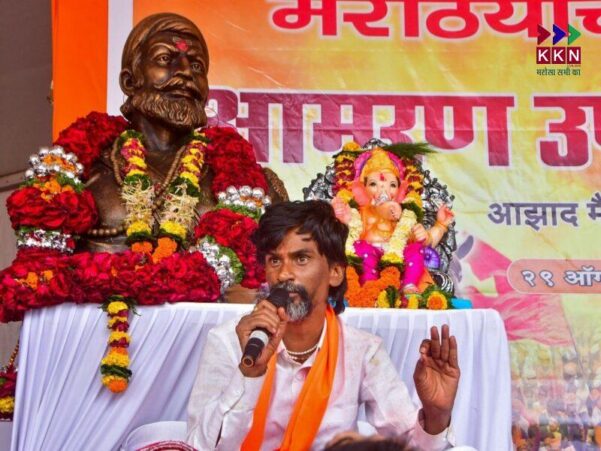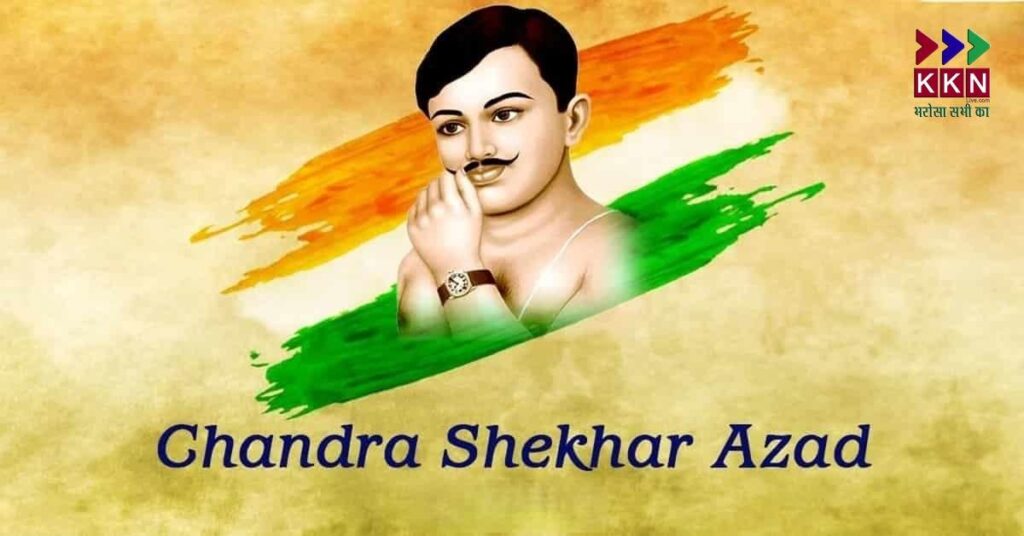
Maratha reservation activist Manoj Jarange has intensified his ongoing protest in Mumbai. On Sunday, Jarange announced that he would stop drinking water from Monday onwards. The decision marks the fourth day of his indefinite hunger strike. He declared he was even ready to face police bullets if necessary. His protest demands that Maratha community members be included in the Other Backward Classes (OBC) quota.
Demand for OBC Reservation Through Government Order
Jarange urged the Maharashtra government to issue an official order recognizing Marathas as part of the OBC category. He argued that existing records clearly prove a link between Marathas and Kunbi, a recognized OBC caste. According to him, over 5.8 million documents establish this connection. He stressed that without reservation, he would not withdraw his protest.
Ready to Face Consequences
Jarange addressed his supporters late Sunday night, stating his determination. “If the Devendra Fadnavis government opens fire, I am ready to face bullets,” he said. He added that he would not leave Azad Maidan until demands were fulfilled. He confirmed that from Monday, he would not drink water during the hunger strike.
Protest at Azad Maidan in Mumbai
Since Friday, Jarange has been leading his indefinite strike at Azad Maidan in South Mumbai. Large numbers of Maratha protesters have joined him at the venue. Traffic police issued warnings of slow movement and disruptions on Monday morning. The crowd gathering around Azad Maidan caused delays in nearby areas. Authorities urged motorists to follow diversions and instructions at intersections.
Government’s Legal Review on Kunbi Status
The Maharashtra government has announced that it will seek legal advice before implementing the Hyderabad Gazette. The Gazette historically recognized Kunbi status, which Jarange demands for Marathas. State Minister Radhakrishna Vikhe Patil, head of the cabinet subcommittee on Maratha reservation, confirmed discussions with senior legal experts. Advocate General Biren Saraf and retired judge Sandeep Shinde advised that more time was needed for a full review.
Supreme Court Barrier
The government also highlighted a Supreme Court observation. The Court had previously stated that Marathas and Kunbis are not the same community. Vikhe Patil emphasized that this opinion could not be ignored. However, he assured that discussions with protest leaders would continue. The committee will brief Chief Minister Devendra Fadnavis on the findings.
Jarange’s Response to Government Statements
Jarange dismissed the government’s legal approach as a delaying tactic. He said that the available records were enough to recognize Marathas as Kunbis. “The government must issue an order based on documents already available,” he insisted. He claimed no one could stop Marathas from receiving OBC quota benefits.
Political Reactions and Tensions
Political tension escalated during the weekend. Protesters stopped NCP (Sharad Pawar faction) MP Supriya Sule’s car near the protest site. Slogans were raised against NCP chief Sharad Pawar. Sule visited Jarange to express solidarity and later urged the state government to call an all-party meeting. She also demanded a special session of the Maharashtra Assembly to address the Maratha quota issue.
Traders Express Concern Over Disruption
Business associations raised concerns about the impact of the protest. The Federation of Retail Traders Welfare Association said the gathering at Azad Maidan had disrupted South Mumbai. President Viren Shah said weekend sales dropped as markets and shops faced reduced customer traffic. “It feels like Mumbai is being held hostage,” Shah remarked. Traders appealed to the government and High Court for intervention to prevent long-term business losses.
Law and Order Challenges for Mumbai Police
Mumbai Police increased deployment in and around Azad Maidan. Authorities warned commuters about potential delays and congestion. The traffic police emphasized that only emergency vehicles would be allowed in restricted areas. Social media posts from the traffic department urged citizens to remain patient and follow official updates.
Concerns Over Media Safety
Amid the protest, the TV Journalists’ Association raised complaints about the behavior of some protesters. The group alleged that certain supporters of Jarange misbehaved with women journalists covering the event. The association warned that if incidents continued, media outlets might boycott coverage of the movement. This added further pressure on organizers to maintain discipline among protesters.
Jarange’s Call for Unity
Jarange encouraged his followers to remain peaceful despite provocations. He repeated that the fight was not just his, but of the entire Maratha community. He asked supporters to stand firm until the demand for 10 percent OBC quota was fulfilled. “We will achieve reservation under OBC, no matter what happens,” he declared.
The Broader Maratha Reservation Issue
The demand for Maratha reservation has been ongoing for decades in Maharashtra. Earlier attempts to grant quotas faced legal setbacks. Courts previously struck down laws citing breaches of constitutional limits on reservation. The inclusion of Marathas under OBC remains a contentious issue, with strong support from the community but legal hurdles from the judiciary.
Impact on State Politics
The agitation comes ahead of municipal elections in Maharashtra. Analysts say the protest puts pressure on the ruling alliance. Opposition parties have already criticized the government for failing to resolve the issue. With Jarange’s protest gaining momentum, the issue could significantly influence voter sentiment. The government’s handling of the protest is being closely watched across the state.
Jarange’s Personal Resolve
Jarange’s declaration to stop drinking water has drawn both sympathy and concern. Medical experts warn that refusal to drink water during a hunger strike can cause serious health risks. His supporters argue that this step shows the seriousness of his commitment. The activist has become a symbol of the Maratha community’s struggle for recognition.
Future of the Protest
As of now, Jarange has refused to budge until the government acts. Legal discussions continue, but his hunger strike has escalated urgency. Political leaders, business groups, and civil society organizations are urging the government to find a quick resolution. The coming days will determine whether dialogue can break the deadlock.
The Maratha Reservation Protest at Azad Maidan has reached a critical point. With Manoj Jarange refusing water and declaring readiness to face bullets, the agitation has intensified. The government is caught between legal restrictions and political pressure. Traders and commuters face disruptions, while political parties calculate electoral impacts. The issue is no longer just about quota—it has become a test of governance, law, and democracy in Maharashtra.


